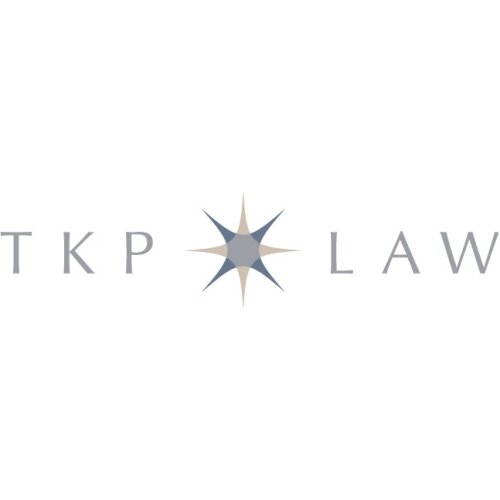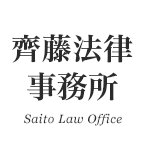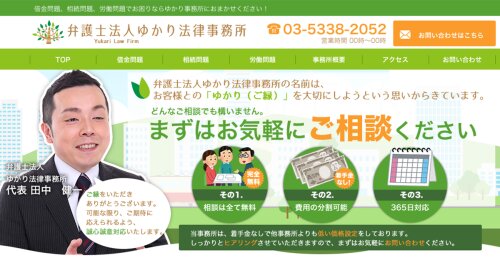Best Father's Rights Lawyers in Tokyo
Share your needs with us, get contacted by law firms.
Free. Takes 2 min.
Free Guide to Hiring a Family Lawyer
List of the best lawyers in Tokyo, Japan
About Father's Rights Law in Tokyo, Japan
Father's Rights Law in Tokyo, Japan, focuses on establishing equal opportunities for fathers to participate in the upbringing and welfare of their children, particularly after a divorce or separation. Japan's provisions regarding custody and parental responsibilities aim to ensure the involvement of both parents in their children's lives. While historically, Japanese family law tended to favor mothers in custody decisions, legislative changes in recent years reflect a growing recognition of the importance of both parents in a child's life. This includes opportunities for fathers to seek joint custody arrangements and more equitable visitation rights.
Why You May Need a Lawyer
There are numerous situations in which legal guidance may be necessary for those navigating Father's Rights in Tokyo:
- Establishing parental rights and responsibilities during or after divorce proceedings.
- Resolving disputes related to child custody, visitation, and parenting time.
- Negotiating child support agreements.
- Addressing and contesting any perceived biases in custody decisions.
- Ensuring compliance with custody agreements or court orders.
- Modifying existing custody or support arrangements due to changed circumstances.
- Understanding and protecting your rights as a non-custodial father.
- Handling cases of parental abduction or relocation disputes.
Local Laws Overview
In Tokyo, Japan, laws related to Father's Rights are governed by the Japanese Civil Code, primarily dealing with family matters. Some key aspects include:
- Custody Types: Japan recognizes sole custody, post-divorce, usually granted to one parent, though shared custody arrangements are becoming increasingly common.
- Visitation Rights: Non-custodial parents are generally granted visitation rights. The court seeks to ensure that children have regular contact with both parents.
- Child Support: Financial obligations are often calculated based on the income of the non-custodial parent, aiming to cover the child's basic needs.
- Mediation Process: Before reaching court, couples are encouraged to undergo mediation to resolve custody and visitation disputes amicably.
- Parental Authority: While post-divorce custody is typically granted to one parent, the non-custodial parent may still retain certain rights to participate in key decisions regarding the child's welfare.
Frequently Asked Questions
What is the primary consideration in custody decisions?
The child's best interests are the cornerstone of any custody decision. The court assesses factors such as the child's well-being, environment, and each parent's ability to meet the child's needs.
Can a father obtain sole custody in Japan?
Yes, a father can obtain sole custody if it is determined to be in the child's best interests. This typically involves demonstrating a stronger capability to support the child's needs or mutual agreement between both parents.
How are visitation rights enforced?
Visitation rights are typically outlined in custody agreements. If a parent is denied access, they may petition the family court for enforcement or modification of the arrangement.
Is joint custody possible in Tokyo?
While traditional law favored sole custody, there's a growing acceptance of joint custody arrangements facilitated by mutual agreement and reflective of the parents' ability to cooperate.
What role does mediation play in custody disputes?
Mediation is often a required step before court intervention, providing a less adversarial means for parents to resolve custody and visitation issues.
How can a father challenge a custody decision?
Fathers may appeal custody decisions by submitting a petition for reconsideration to the court, presenting evidence or circumstances warranting a review.
How is child support determined?
Child support is calculated based on the non-custodial parent's income, considering the child's needs and aiming to ensure stable financial support.
Can visitation rights be changed after a decision is made?
Visitation rights can be modified if circumstances change significantly, necessitating adjustments to support the child's best interests better.
What happens if one parent moves abroad?
Relocation cases require the court's approval, focusing on the child's best interests and ensuring continued parental contact.
What rights do unmarried fathers have?
Unmarried fathers can establish parental rights through court petitions, particularly concerning visitation and custody, provided paternity is recognized.
Additional Resources
For further assistance, consider reaching out to the following resources:
- Tokyo Bar Association: Offers guidance and referrals to family law specialists.
- Legal Support Center (Houterasu): Provides legal education and resources for individuals facing family law issues.
- Japanese Family Court: Primary venue for resolving custody and support disputes.
- Father's Rights Advocacy Groups: Various organizations in Tokyo support and advocate for father's rights, offering community and resources.
Next Steps
If you need legal assistance regarding Father's Rights in Tokyo, consider taking the following steps:
- Consult a Specialist: Contact a lawyer specializing in family law to discuss your situation and explore options.
- Gather Documentation: Compile important documents such as custody agreements, communication records, and financial statements.
- Attend Mediation Sessions: Engage in court-ordered mediation to resolve disputes collaboratively.
- Participate in Legal Workshops: Attend seminars or workshops to better understand your rights and responsibilities.
- Contact Local Support Groups: Engage with local community resources and support groups for fathers navigating similar issues.
Lawzana helps you find the best lawyers and law firms in Tokyo through a curated and pre-screened list of qualified legal professionals. Our platform offers rankings and detailed profiles of attorneys and law firms, allowing you to compare based on practice areas, including Father's Rights, experience, and client feedback.
Each profile includes a description of the firm's areas of practice, client reviews, team members and partners, year of establishment, spoken languages, office locations, contact information, social media presence, and any published articles or resources. Most firms on our platform speak English and are experienced in both local and international legal matters.
Get a quote from top-rated law firms in Tokyo, Japan — quickly, securely, and without unnecessary hassle.
Disclaimer:
The information provided on this page is for general informational purposes only and does not constitute legal advice. While we strive to ensure the accuracy and relevance of the content, legal information may change over time, and interpretations of the law can vary. You should always consult with a qualified legal professional for advice specific to your situation.
We disclaim all liability for actions taken or not taken based on the content of this page. If you believe any information is incorrect or outdated, please contact us, and we will review and update it where appropriate.















